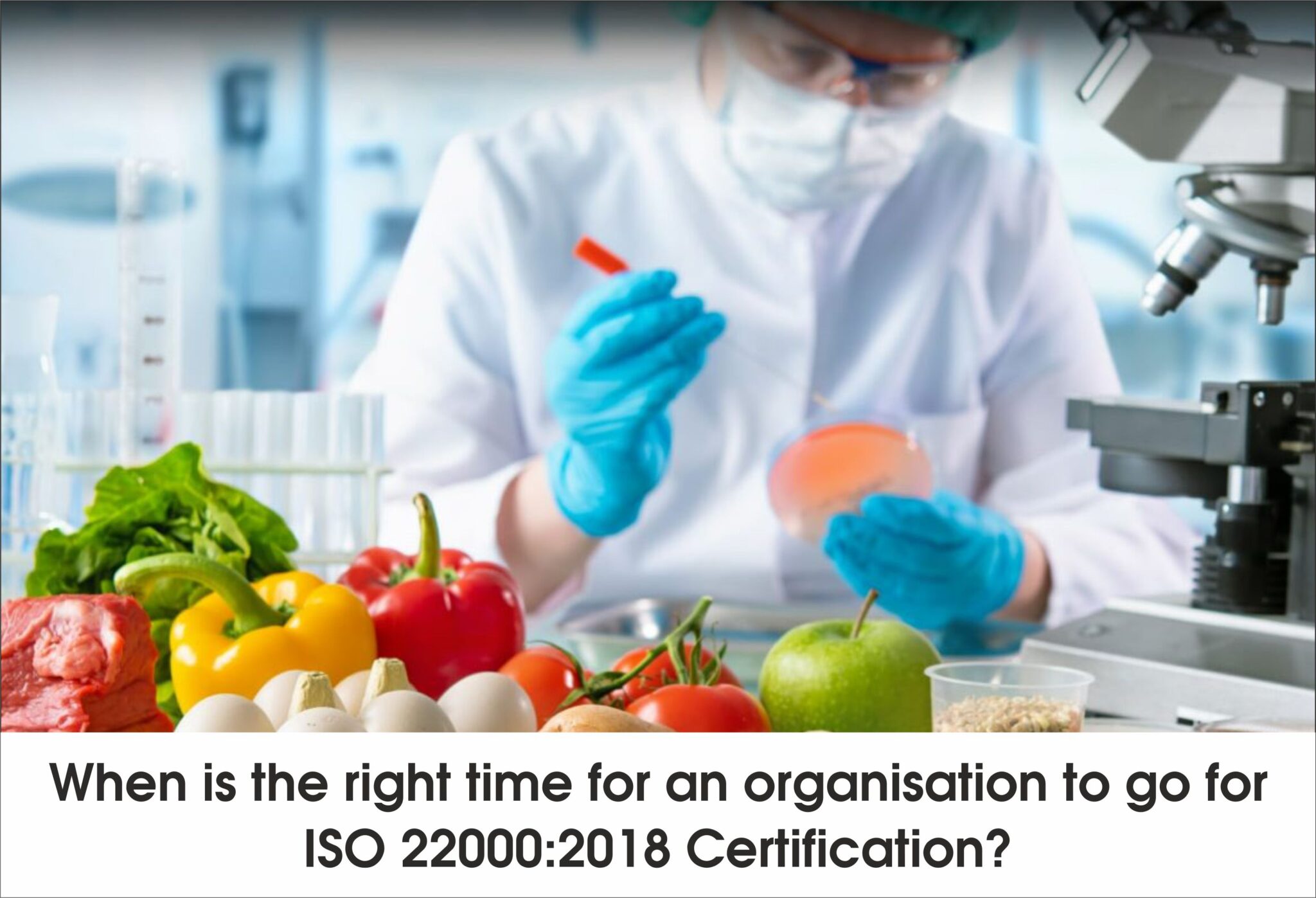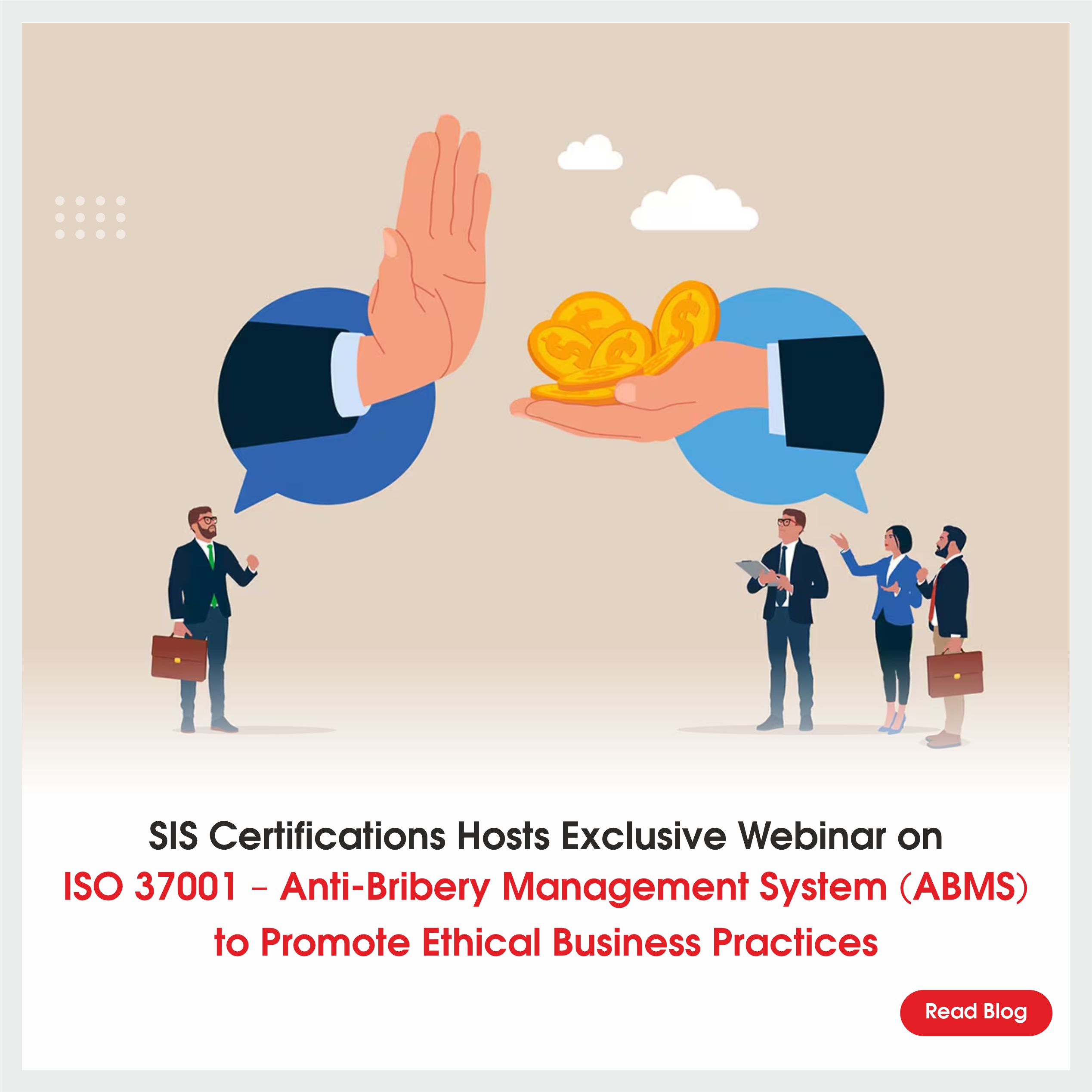In today’s globalised and highly competitive business environment, organisations across various industries are constantly seeking ways to improve their processes, enhance product quality, and ensure the safety of their products. One effective way to achieve these goals is by obtaining ISO 22000 certification.
It is a globally recognised Food Safety Management System (FSMS). However, many organisations often find it challenging to decide, “When is the right time for an organisation to go for ISO 22000 certification?”
In this blog, we’ll explore the factors that will help you pursue ISO 22000 certification and determine the optimal timing for your organisation.
Factors that encourage organisations to apply for ISO 22000 Certification
Commitment to Food Safety
ISO 22000 certification demonstrates an organisation’s unwavering dedication to food safety. If prioritising the safety of food products is genuinely ingrained in your organisational values, pursuing this certification should be your primary focus. ISO 22000 sets strict benchmarks for food safety management systems, encompassing hazard analysis and continuous improvement.
Regulatory Requirements
Organisations must comply with regulations and statutory requirements to achieve ISO 22000 certification to operate in the market. Moreover, it is critical to investigate the regulatory environment and discover the requirements of ISO 22000 certification before entering new markets or sectors.
Customer Demands
Customer awareness and concern regarding food safety have reached new heights in modern times. Consumers view ISO 22000 certification as a symbol of trust and excellence, as it assures them the food products they consume are safe and high-quality. It exhibits that the opportune moment to pursue certification has arrived.
Competitive Advantage
The ISO 22000 certificate offers businesses a substantial edge in the competitive market. It shows your dedication to food quality and safety, which can distinguish you from rivals who lack this accreditation.
Operational Readiness
An ISO 22000-certified organisation follows a systematic method and process-based approach to ensure food safety. It ensures that an organisation has the essential resources, such as competent staff, sufficient time, and financial means. Moreover, the certification conducts a comprehensive internal evaluation that will help identify any shortcomings in your food safety management system, allowing you to take appropriate measures to rectify them.
Continuous Improvement
The implementation of ISO 22000 represents a commitment to ongoing improvement to deliver safe and healthy food products. You are on the right track if your company is already committed to enhancing food safety procedures and is proactive in resolving any problems or difficulties that may occur.
Cost-Benefit Analysis
Organisations with an ISO 22000 certificate have significant resources in terms of time and finances. It mandates organisations to conduct a comprehensive cost-benefit evaluation to decide if the investment in ISO 22000 certification is worthwhile. Assess the potential return on investment, such as the ability to attract new customers, expand market presence, and enhance operational efficiency.
Employee Engagement
It is essential to include personnel at all levels of the business for organisations to achieve ISO 22000 certification. The certification process runs more smoothly and efficiently when staff members are informed about and encouraged food safety. You are better prepared to pursue ISO 22000 certification if your company has already conducted employee training and engagement programmes relating to food safety.
Conclusion ✅
Organisations must demonstrate their compliance with regulatory requirements, customer demands, competitive advantage, and operational readiness to obtain a food safety certificate. Organisations must evaluate multiple variables to decide the best time to pursue ISO 22000 certification. Certification is a powerful marketing tool for boosting food safety, quality, and overall business performance.




